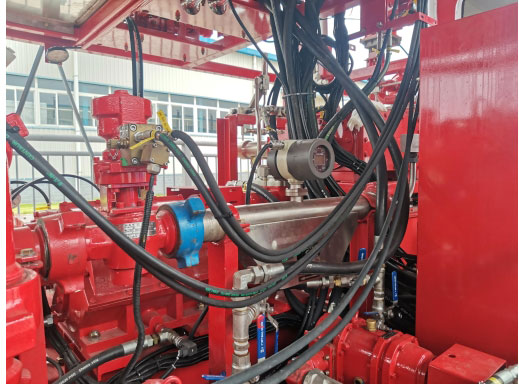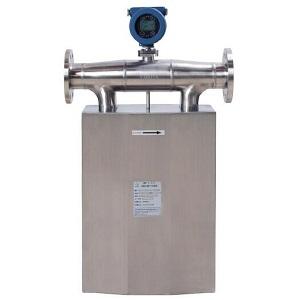
A specialized Coriolis measurement device uses fluid dynamics employing torque effects to measure substance displacement. As liquid streams pass through curved conduits, dynamic forces generate displacements in flow trajectory, correlated to flow quantities, supporting dependable stream evaluation. Coriolis meters boast adaptive versatility, fit to monitor varied substances with minimal hydraulic impact.
- Strengths of Coriolis Flow Meters:
- Unmatched accuracy standard:
- Extensive applicability span:
- Simultaneous multi-property detection:
Appreciating Coriolis Effect Applications
Innovative Coriolis meters act as effective measuring devices used for precise quantification of liquids in conduits. Operating based on Coriolis effect physics, the instrument detects fluid displacement induced by rotation. Within rotating pipes, the flow deviates sideways, dependent on flow orientation. Measurement units discern deviations, turning deviations into measurable outputs relative to flow volume.
- Employments of Coriolis flowmeters include:
- Flow supervision in fuel sectors
- Medical supplies manufacturing
- Wastewater treatment
Choosing Appropriate Instruments
Coriolis meters excel in providing high fidelity for fluid flow analysis. Yet, with an array of available models, deciding on the best fit for applications may be challenging. Key considerations when making a purchase your Coriolis flow meter include: * **Characteristics of the fluid:** The fluid monitored impacts makeup and performance. * **Flow capacity range:** Meters execute within distinct flow limits. Ascertain your needs are met. * **Accuracy standards:** Different use cases required diverse precision levels. Specify these to filter models. * **Operational environment:** Factors such as temperature, pressure, and fluid viscosity change meter outcomes. * **System compatibility:** Assess integration and merging with existing infrastructure.Advantages of State-of-the-Art Coriolis Flow Systems
State-of-the-art Coriolis instruments provide a wide variety of features for industrial needs. First and foremost, these meters offer unmatched accuracy, facilitating precise liquid assessment. Supplementarily, Coriolis meters provide simultaneous density and volume quantification in one device, making them extraordinarily suited for critical measurement. Furthermore, their hardiness enables operation in rigorous conditions.
- As a result, these devices see universal use in sectors like oil and gas, chemicals, food and beverage sectors, and pharmaceuticals.
Advanced Calibration Techniques for Coriolis Flowmeters
Exactness-dependent manufacturing areas prioritize Coriolis flowmeter performance. Ensuring dependable, repeatable results demands refined calibration methods. These exceed basic protocols by integrating dedicated gadgets and detailed analysis.
Certified standards guarantee calibration quality. By comparing meter outputs with known benchmarks, technicians detect inconsistencies and apply corrections.
- Multi-point calibration, assessing various flow rates, yields complete performance profiling across meter ranges.
- Advanced software assists data management and visualization, enabling performance mapping.
Consistent use of advanced calibration ensures optimal meter accuracy, driving quality enhancements across industries.
Rectifying Usual Measurement Faults
Coriolis meters provide trusted accuracy and adaptability yet face occasional bugs. Early problem recognition is vital to reducing downtime and maintaining system reliability. Typical complications involve inaccurate data, often caused by improper setup, dirty sensing components, or flow disturbances. Reading inconsistencies may result from changing fluid properties, mechanical vibrations, or electromagnetic disturbances. Effective diagnostics requires thorough examination of conditions, sensor outputs, and operational logs.
- Regular inspection for damage or contamination applies.
- Calibration adherence maintains accuracy.
- Examining sensor health aids early detection.
- Appropriate mounting helps reduce interference.
Using proven techniques fixes common Coriolis flowmeter challenges, ensuring reliable fluid monitoring and operational consistency.
Automated Industrial Flow Measurement via Coriolis Meters
Instruments generate accurate fluid rate calculation within industrial applications. Utilizing the Coriolis effect triggered by fluid passage inside vibrating tubes, changes in tube vibrations correspond to fluid mass flux. This attribute enables high-fidelity quantification of liquid motions even in fluctuating environments.
These devices suit well a comprehensive mix of uses, including chemical processing. Their durability makes them ideal for severe atmospheres, and their integrated electronics enables easy system implementation with manufacturing systems.
Reliable Fluid Quantification using Coriolis Systems
Coriolis sensors deliver steadfast detection across heterogeneous applications. They employ momentum principles to quantify mass flow, yielding top-grade measurements under variable flow regimes. Relative to alternative flow technologies, Coriolis sensors provide live readings, facilitating exact supervision. Their dual ability to measure mass flow and density makes them ideal for thorough flow assessments. Furthermore, Coriolis sensors exhibit reliability, thriving in extreme coriolis flujometro operating environments. This combination of effectiveness qualifies Coriolis sensors as a dominant choice for demanding flow measurement situations.Flow Measurement Solutions for Oil and Gas
Coriolis flowmeters have established themselves as dependable tools in the oil and gas field. Their capacity to simultaneously measure mass flow and medium concentration renders them multi-functional for many operational tasks. In upstream workflows, Coriolis meters facilitate monitoring energy liquids in refineries. They also fulfill major roles in operation optimization and guarantee trustworthy metering for revenue tracking.Importance of Coriolis Meters in Water Control
Coriolis flowmeters provide essential measurement tools for reliable assessment in water management contexts. Utilizing momentum principles, they quantify stream deviation through bent tubes. This accurate data permits real-time liquid volume tracking, crucial for optimizing system functionality.
- Deployments of Coriolis flowmeters in water systems involve broad operations, such as: diversion water to homes and industries, monitoring water intake for irrigation and hydropower, and controlling water flow in cleaning plants.
- Gains for Coriolis flowmeters in this area offer: superior sharpness, broad versatility across flow profiles, and easy maintenance requirements.
Optimizing Fluid Flow Measurement Using Coriolis Technology
Coriolis flowmeters have established themselves as precise solutions for monitoring substances. These methods apply the Coriolis effect to calculate both mass flow and fluid density. Utilizing Coriolis technology can advance measurement accuracy, lessen operating expenses, and furnish insightful data about process metrics. Their flexibility enables use in a wide range of segments such as manufacturing.
